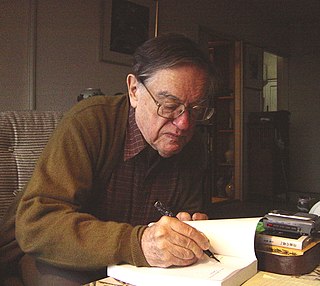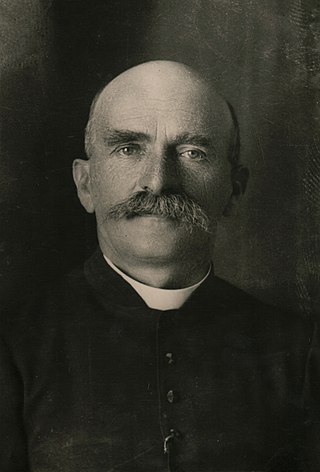Related Research Articles

Telugu is a Dravidian language native to the Indian states of Andhra Pradesh and Telangana, where it is also the official language. Spoken by about 96 million people (2022), Telugu is the most widely spoken member of the Dravidian language family, and one of the twenty-two scheduled languages of the Republic of India. It is one of the few languages that has primary official status in more than one Indian state, alongside Hindi and Bengali. Telugu is one of the six languages designated as a classical language by the Government of India. It is the 14th most spoken native language in the world. Modern Standard Telugu is based on the dialect of Godavarikhani- Manchiryal region in Telangana.

Hanja, alternatively known as Hancha, are Chinese characters used in the writing of Korean. Hanja was used as early as the Gojoseon period under the first Korean kingdom.
Islamic studies refers to the academic study of Islam, and generally to academic multidisciplinary "studies" programs—programs similar to others that focus on the history, texts and theologies of other religious traditions, such as Eastern Christian Studies or Jewish Studies but also fields such as —where scholars from diverse disciplines participate and exchange ideas pertaining to the particular field of study.

Comparative literature is an academic field dealing with the study of literature and cultural expression across linguistic, national, geographic, and disciplinary boundaries. Comparative literature "performs a role similar to that of the study of international relations but works with languages and artistic traditions, so as to understand cultures 'from the inside'". While most frequently practised with works of different languages, comparative literature may also be performed on works of the same language if the works originate from different nations or cultures in which that language is spoken.

Donald Lawrence Keene was an American-born Japanese scholar, historian, teacher, writer and translator of Japanese literature. Keene was University Professor emeritus and Shincho Professor Emeritus of Japanese Literature at Columbia University, where he taught for over fifty years. Soon after the 2011 Tōhoku earthquake and tsunami, he retired from Columbia, moved to Japan permanently, and acquired citizenship under the name Kīn Donarudo. This was also his poetic pen name and occasional nickname, spelled in the ateji form 鬼怒鳴門.

Ndre Mjeda was an Albanian philologist, poet, priest, rilindas, translator and writer of the Albanian Renaissance. He was a member of the Mjeda family.
Tenth grade is the tenth year of formal or compulsory education. It is typically the second year of high school. In many parts of the world, students in tenth grade are usually 15 or 16 years of age.
Eleventh grade is the eleventh year of formal or compulsory education. It is typically the third year of high school. Students in eleventh grade are usually 16-17 years of age.
Jewish studies is an academic discipline centered on the study of Jews and Judaism. Jewish studies is interdisciplinary and combines aspects of history, Middle Eastern studies, Asian studies, Oriental studies, religious studies, archeology, sociology, languages, political science, area studies, women's studies, and ethnic studies. Jewish studies as a distinct field is mainly present at colleges and universities in North America.

Bukharian is a Judeo-Persian dialect historically spoken by the Bukharan Jews of Central Asia. It is a Jewish dialect derived from —and largely mutually intelligible with— the Tajik branch of the Persian language.

The Klingon Hamlet, or The Tragedy of Khamlet, Son of the Emperor of Qo'noS, is a translation of William Shakespeare's Hamlet into Klingon, a constructed language first appearing in the science fiction franchise Star Trek.

Celtic studies or Celtology is the academic discipline occupied with the study of any sort of cultural output relating to the Celtic-speaking peoples. This ranges from linguistics, literature and art history, archaeology and history, the focus lying on the study of the various Celtic languages, living and extinct. The primary areas of focus are the six Celtic languages currently in use: Irish, Scottish Gaelic, Manx, Welsh, Cornish, and Breton.

The Edison Academy Magnet School is a four-year career academy and college preparatory magnet public high school located on the campus of the Middlesex County College in Edison, in Middlesex County, New Jersey, United States, serving students in ninth through twelfth grades as part of the Middlesex County Magnet Schools. The school serves students from all over Middlesex County who are eligible to apply to their program of choice while in eighth grade.
The English Education Act 1835 was a legislative Act of the Council of India, gave effect to a decision in 1835 by Lord William Bentinck, then Governor-General of the British East India Company, to reallocate funds it was required by the British Parliament to spend on education and literature in India. Previously, they had given limited support to traditional Muslim and Hindu education and the publication of literature in the then traditional languages of education in India ; henceforward they were to support establishments teaching a Western curriculum with English as the language of instruction. Together with other measures promoting English as the language of administration and of the higher law courts, this led eventually to English becoming one of the languages of India, rather than simply the native tongue of its foreign rulers.

Bhashacharya Acharya Suniti Kumar Chatterjee was an Indian linguist, educationist and litterateur. He was a recipient of the second-highest Indian civilian honour of Padma Vibhushan.
Alan Sinfield was an English theorist in the fields of Shakespeare and sexuality, modern theatre, gender studies, queer theory, queer studies, post-1945 politics and cultural theory. He was a professor of English at the University of Sussex, and the author of a dozen books, and is credited with a leading role in establishing queer studies in mainstream academic studies.

The national language and official language of Bangladesh is Bangla according to the third article of the Constitution of Bangladesh. The second most spoken language in Bangladesh is claimed to be Burmese which is spoken by the Marma tribe in Chittagong Hill districts as the districts border Myanmar; it is also spoken by the Rohingya people. Almost 99% of Bangladeshis speak Bengali as their first language. Bengali Language Implementation Act, 1987 made it mandatory to use Bengali in all government affairs except in the cases of foreign relations. According to a 2022 census, Bengali is predominantly spoken by 99% of the country's population and it also serves as the national language of the nation. The indigenous people of northern and southeastern Bangladesh speak a variety of native languages. Bangladesh has 44 indigenous languages according to Professor Shameem Reza.
English studies is an academic discipline taught in primary, secondary, and post-secondary education in English-speaking countries; it is not to be confused with English taught as a foreign language, which is a distinct discipline. An expert on English studies can be called an Anglicist. The discipline involves the study and exploration of texts created in English literature. English studies include: the study of literature, the majority of which comes from Britain, the United States, and Ireland ; English composition, including writing essays, short stories, and poetry; English language arts, including the study of grammar, usage, and style; and English sociolinguistics, including discourse analysis of written and spoken texts in the English language, the history of the English language, English language learning and teaching, and the study of World of English. English linguistics is usually treated as a distinct discipline, taught in a department of linguistics.
Paal-Helge Haugen is a Norwegian poet, novelist, dramatist and children's writer who has published over 30 books. His titles have been translated into at least 20 languages. His 1968 "punktroman" or "pointillist novel," Anne, was the first in its genre and was soon considered a modern classic. In 2019, Hanging Loose Press published the first English translation of Anne], after Julia Johanne Tolo's translation of the book won the sixth annual Loose Translations Prize, jointly sponsored by Hanging Loose Press and the graduate writing program of Queens College, City University of New York.

The New Academy or Greek Academy was a renowned educational institution, operating from 1743 to 1769 in Moscopole, an 18th-century cultural and commercial metropolis of the Aromanians and leading center of Greek culture in what is now southern Albania. It was nicknamed the "worthiest jewel of the city" and played a very active role in the inception of the modern Greek Enlightenment movement.
References
- ↑ Zmirak, John (2014). Choosing the Right College 2012–2013: The Whole Truth about America's Top Schools. Open Road Media. p. 2616. ISBN 9781497620834.